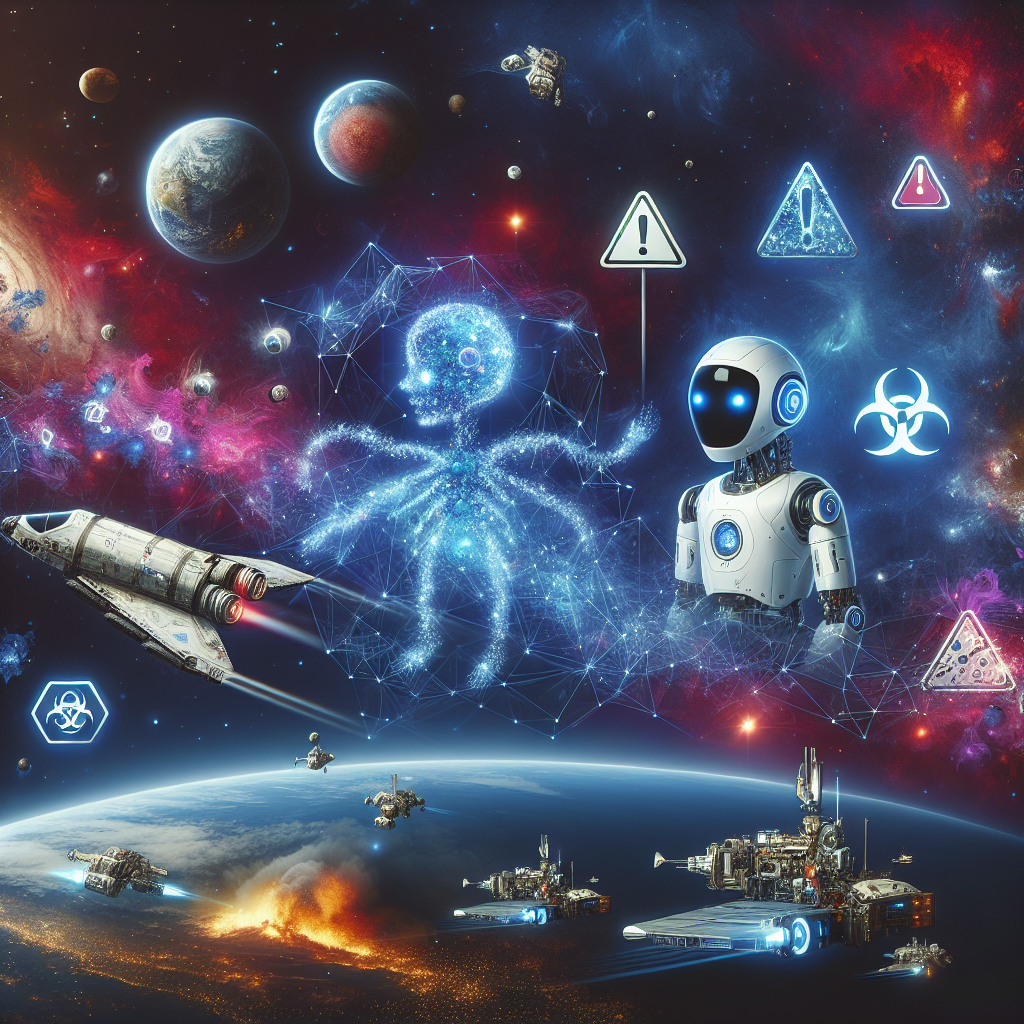Space exploration has always been a risky endeavor, with challenges ranging from the harsh conditions of space to the unpredictability of cosmic phenomena. However, as technology advances, a new risk has emerged: artificial intelligence (AI). While AI has the potential to revolutionize space exploration by enabling autonomous spacecraft and robots to perform tasks that were previously impossible, it also poses new dangers and threats that must be carefully considered.
One of the primary risks of AI in space exploration is the potential for errors or malfunctions in AI systems. Just like any other technology, AI systems are not infallible and can make mistakes. In the context of space exploration, these mistakes could have catastrophic consequences, such as a spacecraft colliding with a celestial body or a rover getting stuck in a dangerous location. While human operators can provide oversight and intervention, the vast distances involved in space exploration mean that communication delays could prevent timely intervention, leading to irreversible damage.
Another risk of AI in space exploration is the potential for AI systems to be hacked or manipulated by malicious actors. As AI systems become more sophisticated and interconnected, they also become more vulnerable to cyber attacks. A hacker could potentially take control of a spacecraft or rover, redirecting it to a dangerous location or causing it to malfunction. This not only poses a risk to the mission itself, but also raises concerns about the security of sensitive data collected during the mission.
Furthermore, the use of AI in space exploration raises ethical concerns about the autonomy of AI systems. While autonomous spacecraft and robots have the potential to perform tasks more efficiently and effectively than human operators, they also raise questions about responsibility and accountability. In the event of an accident or mistake, who is ultimately responsible? Should AI systems be programmed to prioritize the safety of humans, or should they be given the freedom to make decisions based on their own algorithms?
In addition to these risks, there are also concerns about the impact of AI on the workforce in the space exploration industry. As AI systems become more advanced, they have the potential to replace human workers in a variety of roles, from mission control to data analysis. While this could lead to cost savings and increased efficiency, it also raises questions about the future of human involvement in space exploration. Will humans be relegated to a passive role, overseeing AI systems from a distance, or will there still be a need for human expertise and intuition in space exploration?
Despite these risks, AI also offers significant benefits for space exploration. AI systems have the potential to analyze vast amounts of data more quickly and accurately than human operators, enabling scientists to make new discoveries and insights about the universe. AI can also enable autonomous spacecraft and robots to perform tasks in harsh environments that would be too dangerous or difficult for human operators. In this way, AI has the potential to expand the scope and capabilities of space exploration, opening up new possibilities for scientific research and exploration.
In order to mitigate the risks of AI in space exploration, it is important for space agencies and organizations to implement robust safety measures and protocols. This includes rigorous testing and validation of AI systems before they are deployed on missions, as well as ongoing monitoring and oversight during the mission itself. It is also important to ensure that AI systems are secure from cyber attacks and hacking, through the use of encryption and other security measures. Additionally, ethical guidelines and standards should be established to govern the use of AI in space exploration, ensuring that AI systems prioritize the safety of humans and adhere to ethical principles.
Despite the risks and challenges, the potential benefits of AI in space exploration are too great to ignore. By carefully considering the risks and implementing appropriate safety measures, AI has the potential to revolutionize space exploration and enable new discoveries about the universe. As technology continues to advance, it is important for space agencies and organizations to continue to innovate and adapt, ensuring that AI remains a powerful tool for exploration and discovery in the vast expanse of space.
FAQs:
Q: Can AI systems be trusted to make decisions in space exploration?
A: While AI systems have the potential to make decisions more quickly and accurately than human operators, they are not infallible and can make mistakes. It is important for AI systems to be rigorously tested and monitored to ensure their reliability and safety.
Q: What are the ethical concerns surrounding the use of AI in space exploration?
A: One of the primary ethical concerns is the autonomy of AI systems and the question of responsibility in the event of an accident or mistake. There are also concerns about the impact of AI on the workforce in the space exploration industry, as AI systems have the potential to replace human workers in a variety of roles.
Q: How can the risks of AI in space exploration be mitigated?
A: The risks of AI in space exploration can be mitigated through rigorous testing and validation of AI systems, as well as ongoing monitoring and oversight during missions. It is also important to ensure that AI systems are secure from cyber attacks and hacking, and to establish ethical guidelines and standards for their use.

